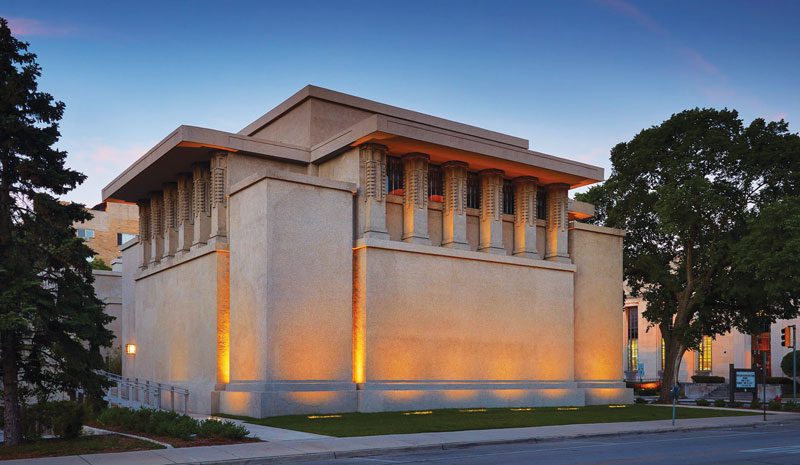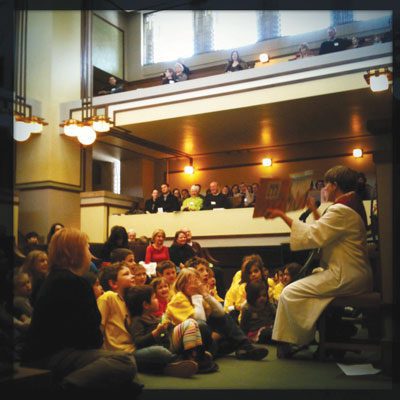
In this summer’s One Book, One Oak Park series, we’re connecting over Eric Klinenberg’s Palaces for the People, which looks at how open, accessible spaces can promote civic engagement and social interaction.
The author uses the term “social infrastructure” to describe public libraries, parks, schools, community gardens, and other places where people assemble and engage. He also includes religious institutions, which “are not merely houses of worship but key sites for community building,” he writes.
One prominent house of worship in Oak Park is Unity Temple, the landmark designed by Frank Lloyd Wright in the early 1900s. It sits across the street from the Main Library, at 875 Lake St. And it’s home to those who find community in the Unity Temple Unitarian Universalist Congregation.

Radical hospitality
“We work on trying to be as welcoming as possible to anyone who walks through our door,” says Rev. Emily Gage. The congregation practices “radical hospitality” and welcomes people with all kinds of religious backgrounds and spiritual perspectives.
Unlike more orthodox religions, Unitarian Universalism draws inspiration from a wide diversity of sources. These include Jewish and Christian teachings, earth-based spirituality, humanist teachings, and people’s own experiences of mystery and wonder.
“A lot of what we talk about, and what we equip our children to do, is to make good decisions about how to live a good life,” Gage says. “And how to change the world to what we want it to look like.”
‘People power’
The religion has seven principles. The first is about upholding the inherent worth and value of each person. The seventh is about respecting “how we’re inextricably connected and what we do affects the people around us,” Gage says.
Living out those principles, the congregation collects money every week and donates it to organizations doing good work in the community.
And through six Faith in Action teams, and with local and regional partners, they work for social justice. This “people power,” as Gage puts it, includes advocating for immigrants and refugees, working to keep women’s health and reproductive services available, and supporting work to transform the criminal justice system.
